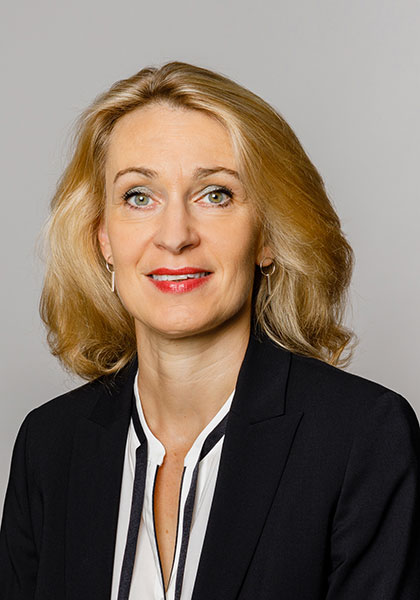UZH the First European University to Establish One Health Institute

The health of humans is inextricably linked to that of animals and the environment. The growing global population means humans are more and more encroaching on animals’ habitats, which increases the risk of pathogens jumping from animals to humans. HIV, SARS and most recently Covid-19 have shown how drastic the societal impact of zoonotic diseases can be. To effectively tackle zoonoses, as well as the problem of antibiotic resistance and many other health risks, interdisciplinary cooperation is required.
Ideal setting
The term One Health refers to a research approach that integrates a range of disciplinary viewpoints to understand the links between human, animal and environmental health. At the UZH Vetsuisse Faculty, One Health has been a research focus since 2018. In 2019, it was identified as one of the university’s strategic principles. “As the largest comprehensive university in Switzerland with outstanding faculties of medicine, veterinary medicine and science, UZH is virtually predestined for successful interdisciplinary collaboration as envisioned in the One Health concept,” says Elisabeth Stark, Vice President Research at UZH.
Ongoing interdisciplinary cooperation
But how exactly can interdisciplinary, cross-faculty collaboration be organized in order to make the most of these synergies? By establishing a One Health Institute, UZH has opted for a particularly unifying solution: the new institute will simultaneously be part of the Vetsuisse Faculty, the Faculty of Medicine and the Faculty of Science, providing the strategic, structural and operational basis for a cross-faculty program with local, national and international visibility. “An inter-faculty institute is recognized as an organizational unit in UZH’s strategy and planning processes and is therefore more permanent than, for example, a center of competence or research network,” says Elisabeth Stark, explaining the decision. “By establishing an institute, we are giving the interdisciplinary One Health approach a solid long-term foundation at UZH and creating the conditions for it to have the greatest possible impact on society.”

UZH has the potential and ambition to be a leader in One Health, both nationally and internationally, in the longer term.
Pioneering role of UZH
By becoming the first European university to establish a One Health Institute, UZH is taking a pioneering role in the field. The goals are ambitious: “UZH has the potential and ambition to be a leader in One Health, both nationally and internationally, in the longer term,” says Vice President Elisabeth Stark.
UZH is already among the leading universities in many research areas that are fundamental to the One Health approach. The Vetsuisse Faculty and the Faculty of Medicine will contribute their expertise on zoonoses, drug resistance, metabolic diseases and cancer, as well as their respective capacities in epidemiology and evolutionary medicine. The Faculty of Science will bring knowledge, methodologies and data from plant sciences and ecology.
International reach
Two tenure-track assistant professorships and one additional assistant professorship will be created at the institute. These assistant professors’ roles are to drive the research forward and foster the next generation of scientists who will continue to advance the One Health approach. In teaching, the new institute will offer specific modules and organize international summer schools. In the longer term, the aim is to build up a Master’s degree program.
The new institute’s activities will have an influence across the university, while at the same time strengthening UZH’s national and international visibility in the field of One Health. UZH’s membership of the European university alliance Una Europa gives it a head start here, as One Health is one of the alliance’s focus topics. This paves the way for the One Health Institute to quickly become a key part of one of the largest international One Health networks. UZH’s established global partnerships – for example with Makarere University in Uganda or Bangalore University in India – will also be harnessed in the longer term.
TRANSFORM funding
Over the next five years, the One Health Institute will receive CHF 1,993 million in seed funding. During this time, it is expected to grow into a permanent institution capable of independently raising third-party funding and expanding its reach using its own resources.
The seed funding has been provided through the new TRANSFORM funding stream. UZH introduced the funding stream at the end of 2021 in order to be able to react quickly and with original solutions to newer developments in the research landscape. The name TRANSFORM stands for “To Reach A New Structure For Optimal Research and Methods”, which says it all, as Elizabeth Stark explains: “With TRANSFORM, we want to clearly highlight certain areas and initiate developments that advance not only individual departments and sections, but the university and research as a whole.”
The One Health Institute fits perfectly into the shift toward promoting networking and priority areas at UZH which gives new, interdisciplinary research approaches a firm footing within university structures. “We can only tackle the greatest challenges of our time if we think beyond disciplinary boundaries,” says Elizabeth Stark, “because when working on complex questions, multi-perspective approaches lead to more original and productive outcomes. Besides, interdisciplinary research priorities mean that departments and faculties jointly develop and use resources and structures. TRANSFORM funds are therefore available to all researchers and faculties seeking to make complex but also sustainable changes in their organizational structures which have often grown organically and may be outdated. I am very grateful to the applicants for their initiative and firmly believe that it will quickly lead to scientific success.”
Unique opportunity
Roger Stephan, Dean of the Vetsuisse Faculty, sees the One Health Institute as “a unique opportunity to work collaboratively – in depth and long term – with experts who have a broad range of knowledge from a variety of fields to tackle the major health problems of our time.” As an example of a useful collective endeavor, he cites databases jointly maintained by researchers in human medicine, veterinary medicine and the natural sciences that can provide information on, among other things, how environmental factors influence diseases such as cancer or diabetes. “An institute jointly supported by three faculties is new for UZH in organizational terms. The road there hasn’t been easy, but it was worth it. I hope that by laying the groundwork, we will inspire similar projects in other areas,” Stephan says.
Solid foundation for later expansion
On the Vetsuisse side, Vice Dean of Studies Thomas Lutz, Adrian Hehl and Max Gassmann were instrumental in planning UZH’s newest institute. “One Health encompasses a wide range of aspects,” says Lutz, who currently heads up the institute’s steering committee, “but it was important to us not to overload the project. Our priority was to establish a solid foundation for a functioning institute, so we initially limited the collaboration to three faculties and focused on the life sciences.” As soon as collaboration is up and running, they want to get research groups from all other UZH faculties involved in order to include ethical, sociocultural, legal and political aspects, amongst others.
A “Universitas” in miniature
Frank Rühli, Dean of the Faculty of Medicine, is convinced that the One Health approach will become better known and attract more interest within human medicine thanks to the new institute. “The OHI is a ‘Universitas’ in miniature because it seeks to understand the reality of health and disease in all its complexity,” he says. As dean, he sees his main task in relation to the new institute as bringing together excellent teams from different disciplines to work on interesting joint research projects. “There are many researchers in my faculty who are already working on One Health issues. I would like to motivate these people to take part in new, intra- and inter-faculty collaborations.”
As a specialist in evolutionary medicine, Rühli was involved in drafting the application for TRANSFORM funding to create the One Health Institute. Evolutionary medicine, which deals with the origin and development of diseases, including in the context of the environment, forms one of the two main thematic directions of the new institute, the other being epidemiology. The One Health Institute and the Institute of Evolutionary Medicine will cooperate closely in the future and share certain research infrastructure. In 2025, the institute will move into its own premises, which Rühli very much welcomes: “Having our own address and common rooms is important to make the One Health idea visible and part of everyday scientific life at UZH.”
Looking at the bigger picture
Stephan Neuhauss, Vice Dean of Research at the Faculty of Science, says with regard to the upcoming work of the new institute: “The building blocks are there, the challenge now is to assemble them productively.” For Neuhauss, the One Health Institute’s greatest value lies in counteracting the inevitable trend toward specialization in science. “The new institute illuminates how all the individual details we explore in our respective disciplines are connected. That’s what is gained from this institute – it will help us keep the bigger picture in mind.”